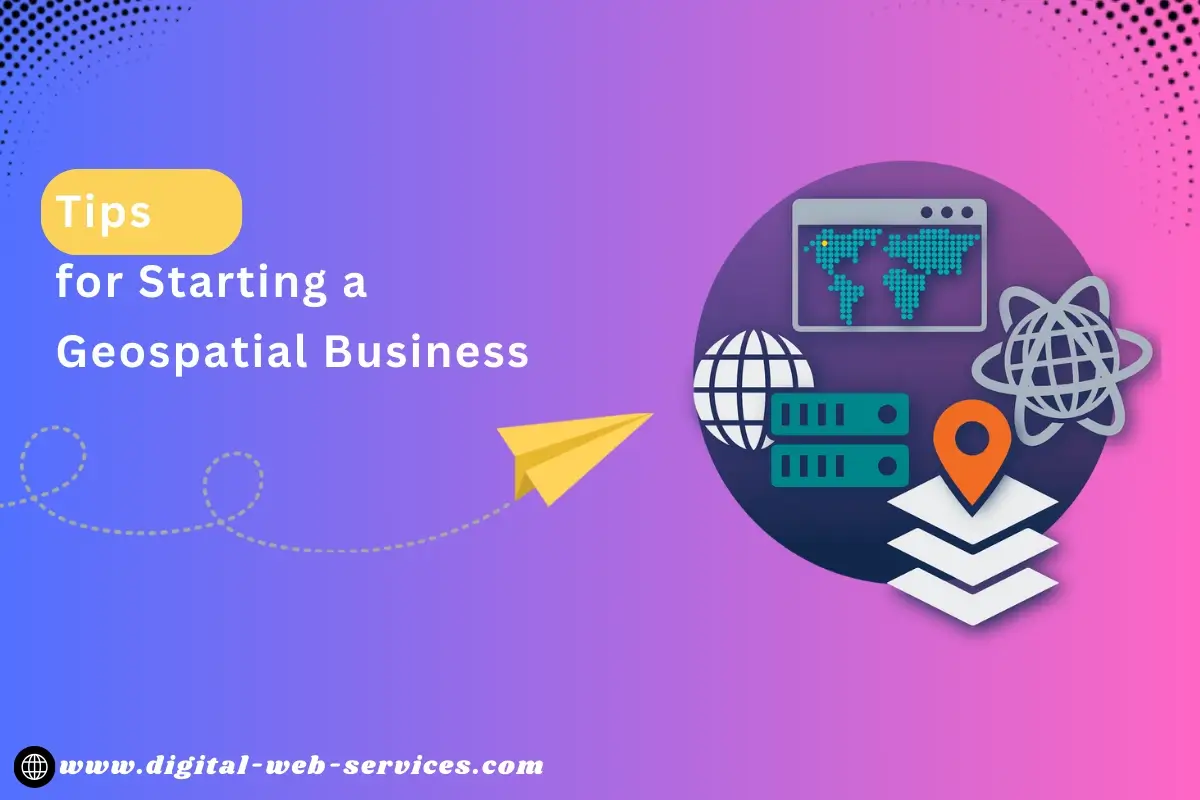
Embarking on the journey of starting a geospatial business is as exciting as it is challenging. With the right strategies and understanding of the market, entrepreneurs can establish successful enterprises that make the most of spatial information and technology. The geospatial industry is flourishing, offering immense opportunities for businesses skilled in collecting, analyzing, and interpreting geographic data. If you’re considering launching a venture in this dynamic field, arming yourself with knowledge and best practices is crucial. Below, we delve into essential tips that will help you build a solid foundation for your geospatial business.
Building a Strong Online Presence for Geospatial Services
In today’s digital world, a robust online presence is crucial for any business seeking growth and visibility. A well-designed website acts as the virtual storefront for your geospatial services, providing potential clients with information on your expertise and offerings. It should be intuitive, informative, and reflective of your brand’s professionalism.
Content marketing, through articles and blog posts related to geospatial topics, can position your business as a thought leader in the industry. By sharing knowledge and insights, you attract not only search engine traffic but also the respect and trust of potential clients. For example, showcasing a Cloquet new vehicle inventory, featuring the latest in geospatially equipped SUVs and sedans, can illustrate the practical applications of your expertise. Vehicle listings can also highlight these features to showcase its importance.
Engagement on social media platforms is also essential, allowing for real-time conversations with clients and the broader geospatial community. Platforms like LinkedIn can be particularly effective for B2B networking, while Instagram or Facebook may showcase project highlights and foster community engagement. In each case, the goal is to build a brand that resonates with your audience.
Lastly, search engine optimization (SEO) practices should be implemented to enhance your online visibility. Researching and using industry-specific keywords, optimizing your site’s mobile compatibility, and earning backlinks from reputable sites within the geospatial community can all improve your search rankings, driving more traffic to your services.
Dissecting the Geospatial Industry Landscape
The geospatial industry is broad, encompassing various services such as mapping, surveying, remote sensing, and geographic information systems (GIS). To tap into this market, one must first comprehend the needs and challenges of potential clients. This includes sectors such as urban planning, environmental management, transportation, and more. Staying abreast of trends, regulations, and technological advancements is crucial to remain competitive and relevant.
Assessing the competition is another vital step. Understanding how other businesses operate, what services they offer, and their pricing models can give you an edge. Learning from their successes and failures helps you to position your business strategically within the market. Moreover, identifying under-served areas or niche markets can lead to profitable opportunities.
Education also plays a significant role in grasping the subtleties of the geospatial field. A masters in GIS could provide a deep understanding of geospatial technology, which is invaluable for running an effective business. Through such programs, entrepreneurs gain critical skills in spatial analysis, data management, and the application of GIS in various industries.
Crafting a Unique Value Proposition for Your Geospatial Business
To stand out in the geospatial sector, your business must offer a unique value proposition (UVP). A compelling UVP clearly communicates why customers should choose your services over competitors. It should highlight your expertise, the innovative nature of your services, or the cost-effectiveness of your solutions. Essentially, your UVP is the promise of distinct and measurable benefits to your clients.
When developing your UVP, consider the specific problems and pain points your services solve. Is there a faster way to collect data? Can you offer more detailed analyses? Maybe your methods are more environmentally friendly or cost-efficient than those of your competitors. Whatever the case, ensure your UVP resonates with your target audience and is reflected in all your marketing efforts.
Networking and Strategic Partnerships in the Geospatial Sector
Networking is a vital element for any burgeoning business, and the geospatial industry is no exception. Building relationships with other professionals in the field can lead to collaborative opportunities, referrals, and insights into emerging trends and technologies. Attend industry conferences, seminars, and workshops to meet peers and learn from experts.
Forming strategic partnerships can enhance your service offerings and extend your market reach. Consider collaborating with academia for research and development, technology firms for advanced tools, or marketing agencies to refine your message. These alliances can complement your capabilities and help you offer more comprehensive solutions to clients.
Creating a community around your brand can also foster a network of advocates. Engage with users and clients through user groups, forums, webinars, and social media channels. Such platforms allow you to receive feedback, provide support, and stay connected to the pulse of the industry.
Overall, launching a successful geospatial business demands thorough industry knowledge, a compelling value proposition, advanced technology, a strong online presence, and active networking. By focusing on these critical areas, entrepreneurs can position their ventures for success and contribute valuable solutions to an ever-evolving market.
Digital Web Services (DWS) is a leading IT company specializing in Software Development, Web Application Development, Website Designing, and Digital Marketing. Here are providing all kinds of services and solutions for the digital transformation of any business and website.










